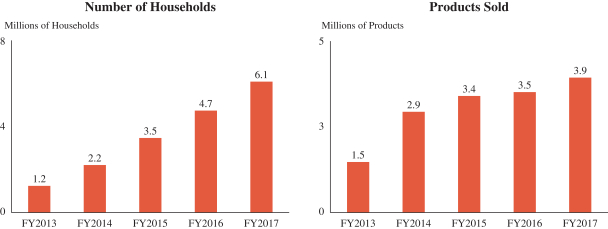Natural disasters, geopolitical unrest, war, terrorism, public health issues or other catastrophic events could disrupt the supply, delivery or demand of products, which could negatively affect our operations and performance.
We are subject to the risk of disruption by earthquakes, floods and other natural disasters, fire, power shortages, geopolitical unrest, war, terrorist attacks and other hostile acts, public health issues, epidemics or pandemics and other events beyond our control and the control of the third parties on which we depend. Any of these catastrophic events, whether in the United States or abroad, may have a strong negative impact on the global economy, us, our contract manufacturer or our suppliers or customers, and could decrease demand for our products, create delays and inefficiencies in our supply chain and make it difficult or impossible for us to deliver products to our customers. Further, our headquarters are located in Santa Barbara, California, in a seismically active region that is also prone to forest fires. Any catastrophic event that occurred near our headquarters, or near our manufacturing facilities in China, could impose significant damage to our ability to conduct our business and could require substantial recovery time, which could have an adverse effect on our business, operating results and financial condition.
We must comply with extensive regulatory requirements, and the cost of such compliance, and any failure to comply, may adversely affect our business, financial condition and results of operations.
In our current business and as we expand into new markets and product categories, we must comply with a wide variety of laws, regulations, standards and other requirements governing, among other things, electrical safety, wireless emissions, health and safety, e-commerce, consumer protection, export and import requirements, hazardous materials usage, product-related energy consumption, packaging, recycling and environmental matters. Compliance with these laws, regulations, standards and other requirements may be onerous and expensive, and they may be inconsistent from jurisdiction to jurisdiction, further increasing the cost of compliance and doing business. Our products may require regulatory approvals or satisfaction of other regulatory concerns in the various jurisdictions in which they are manufactured, sold or both. These requirements create procurement and design challenges that require us to incur additional costs identifying suppliers and manufacturers who can obtain and produce compliant materials, parts and products. Failure to comply with such requirements can subject us to liability, additional costs and reputational harm and, in extreme cases, force us to recall products or prevent us from selling our products in certain jurisdictions. If there is a new regulation, or change to an existing regulation, that significantly increases our costs of manufacturing or causes us to significantly alter the way that we manufacture our products, this would have a material adverse effect on our business, financial condition and results of operations. Additionally, while we have implemented policies and procedures designed to ensure compliance with applicable laws and regulations, there can be no assurance that our employees, contractors and agents will not violate such laws and regulations or our policies and procedures.
We are subject to the Foreign Corrupt Practices Act, or the FCPA, and our failure to comply with the laws and regulations there under could result in penalties which could harm our reputation, business and financial condition.
Due to our international operations, we are subject to the FCPA, which generally prohibits companies and their intermediaries from making improper payments to foreign officials for the purpose of obtaining or keeping business. The FCPA also requires companies to maintain adequate recordkeeping and internal accounting practices to accurately reflect our transactions. Under the FCPA, U.S. companies may be held liable for actions taken by their strategic or local partners or representatives. The FCPA and similar laws in other countries can impose civil and criminal penalties for violations. If we do not properly implement practices and controls with respect to compliance with the FCPA and similar laws, or if we fail to enforce those practices and controls properly, we may be subject to regulatory sanctions, including administrative costs related to governmental and internal investigations, civil and criminal penalties, injunctions and restrictions on our business activities, all of which could harm our reputation, business and financial condition.
26












